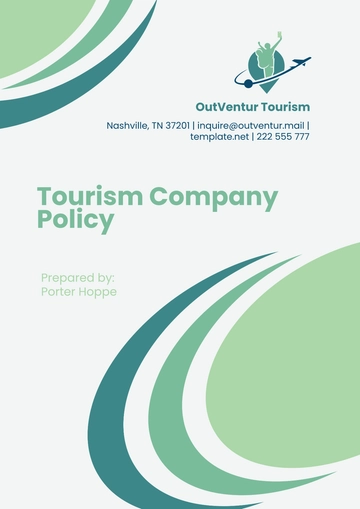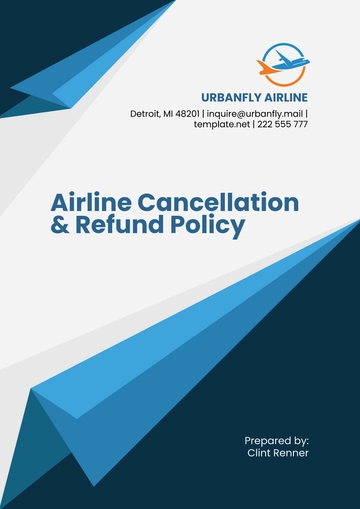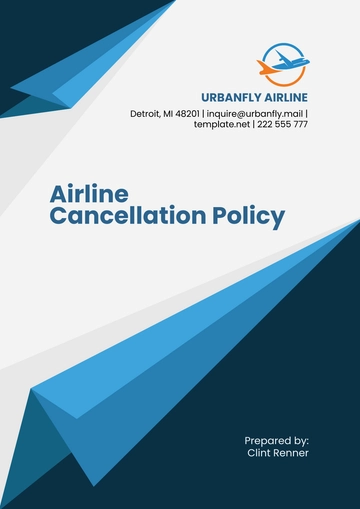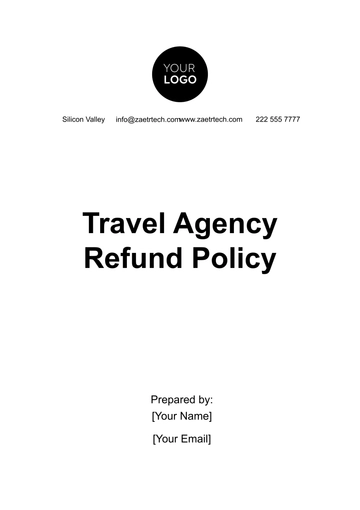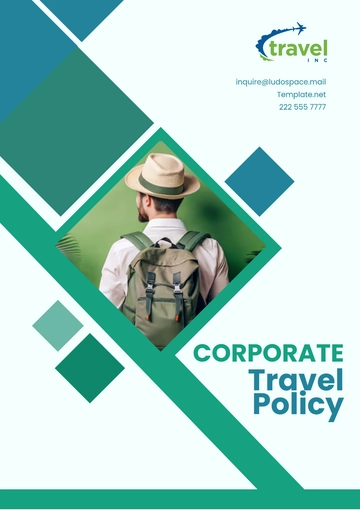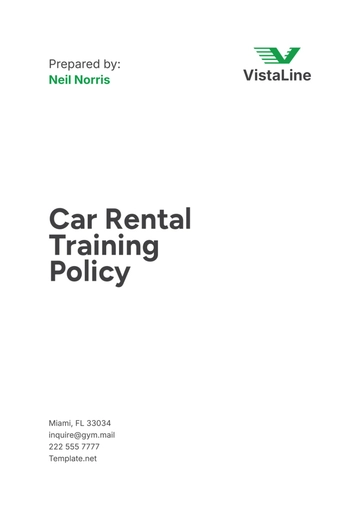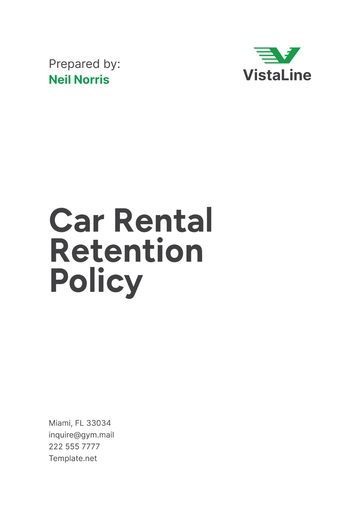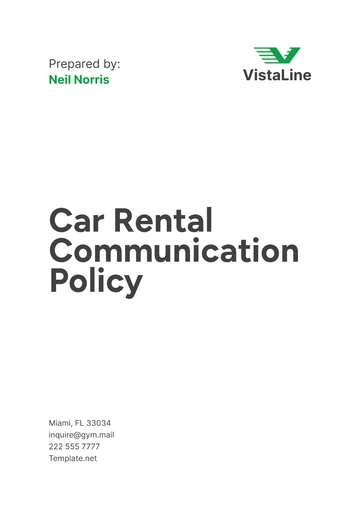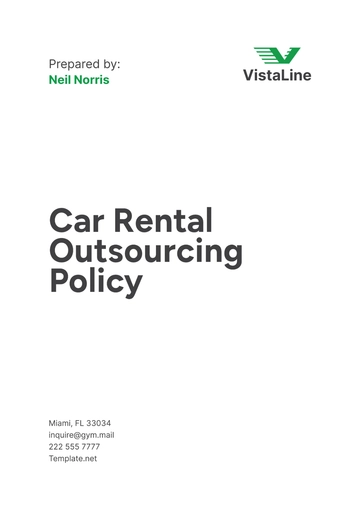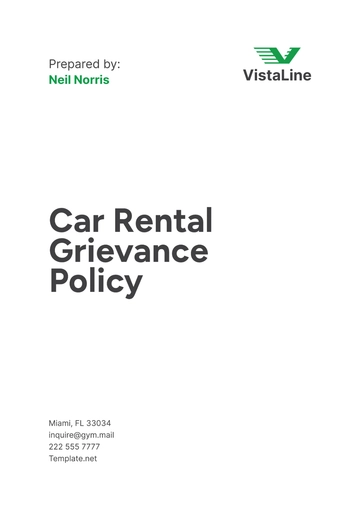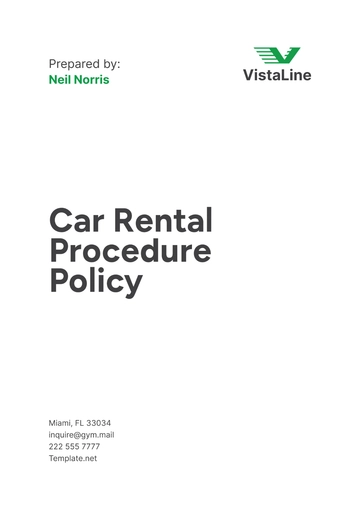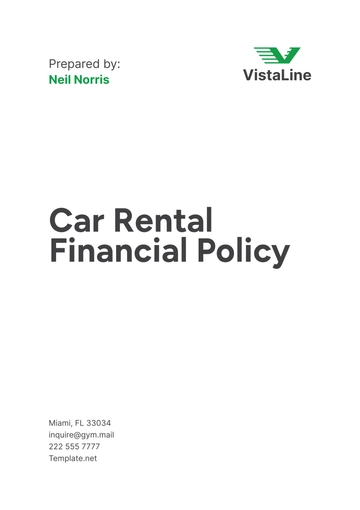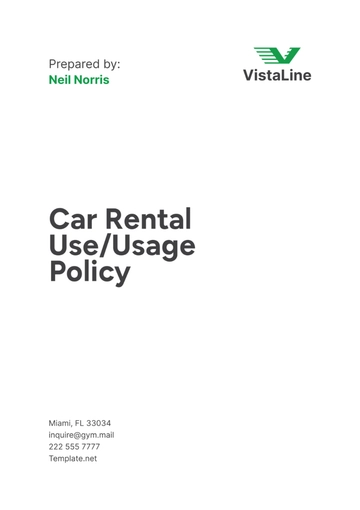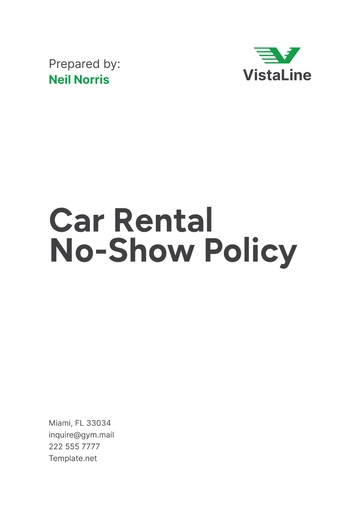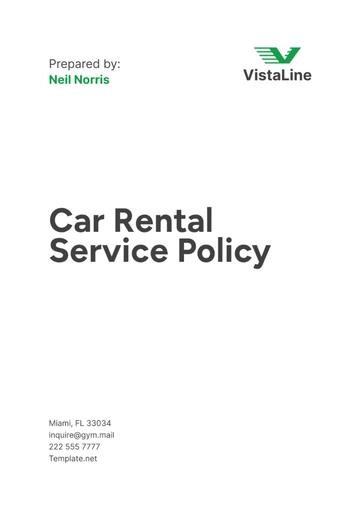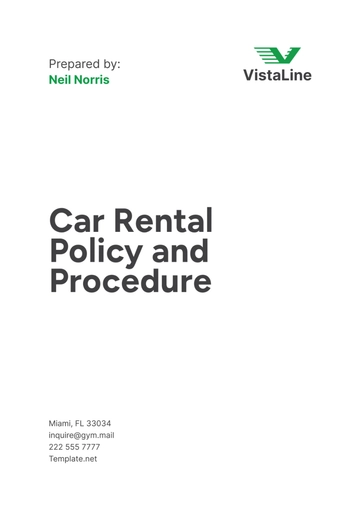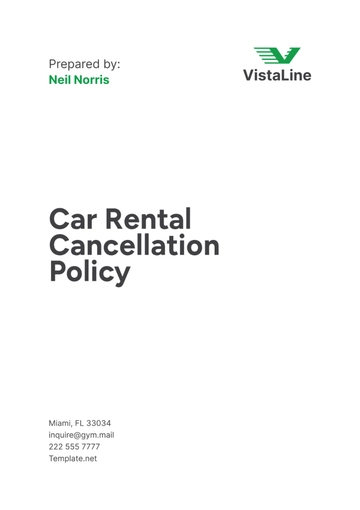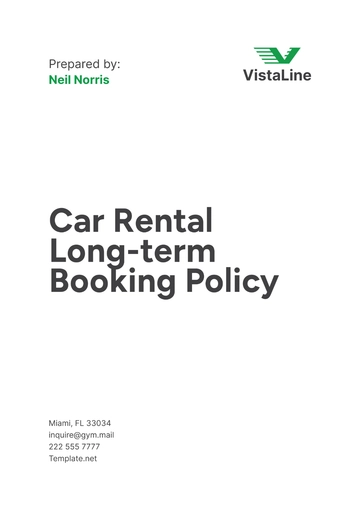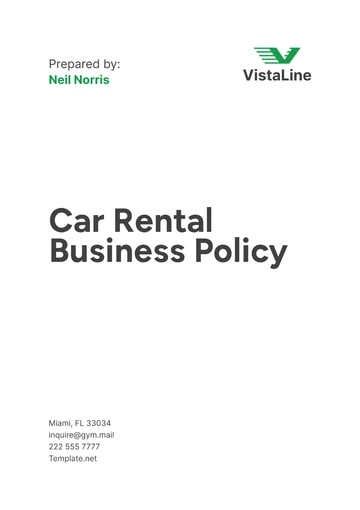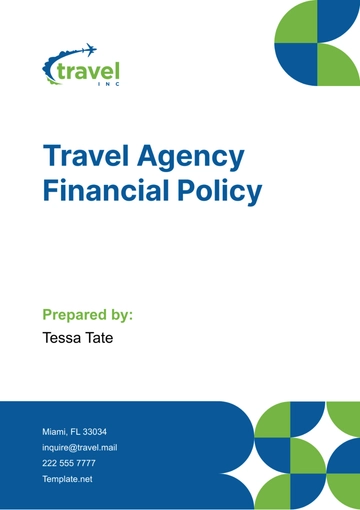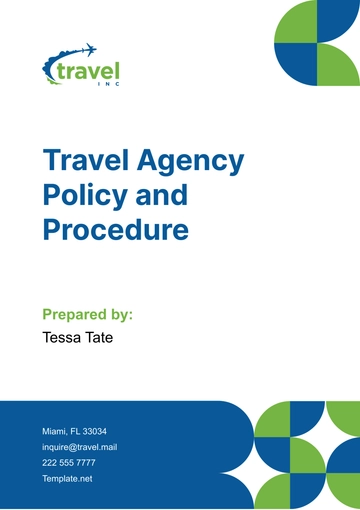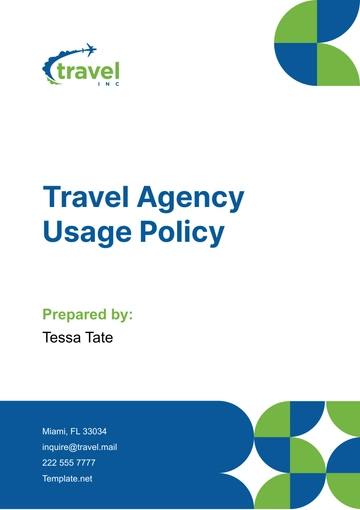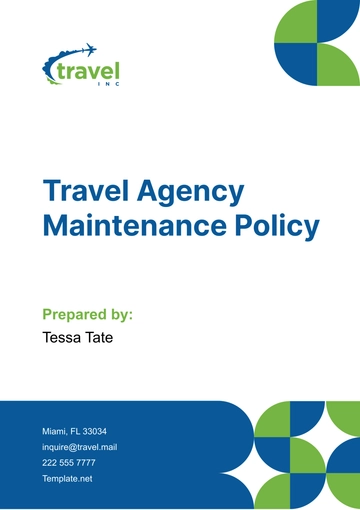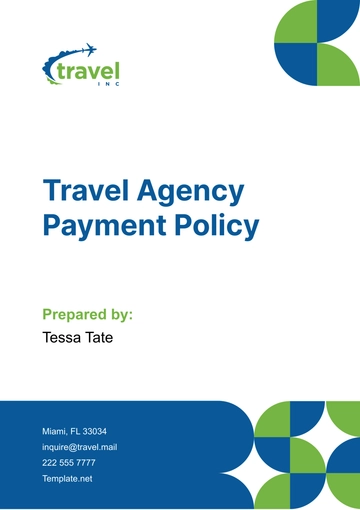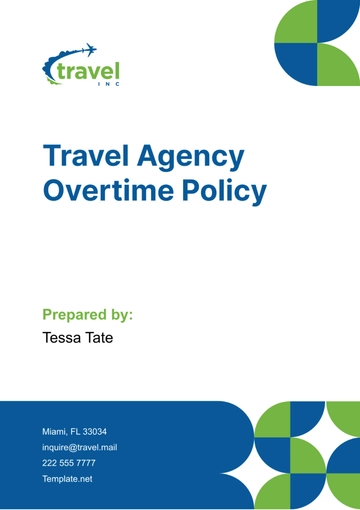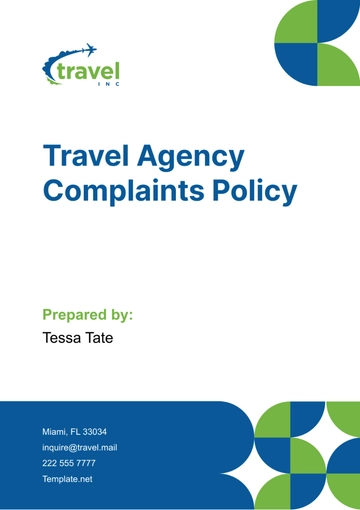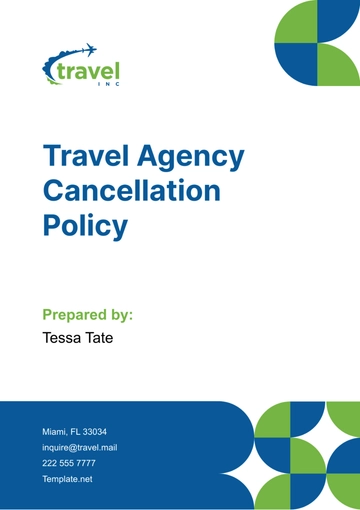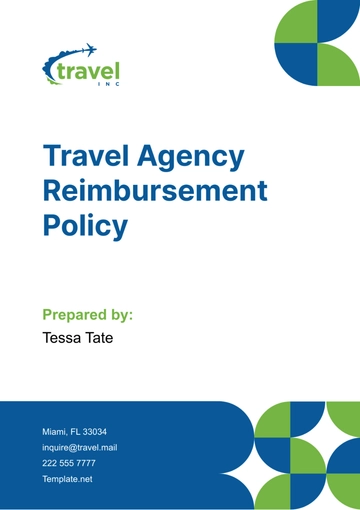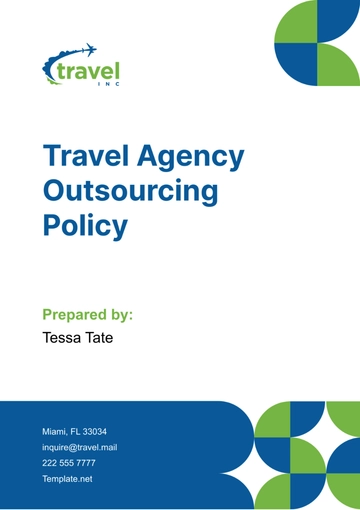Free Travel Agency Reimbursement Policy
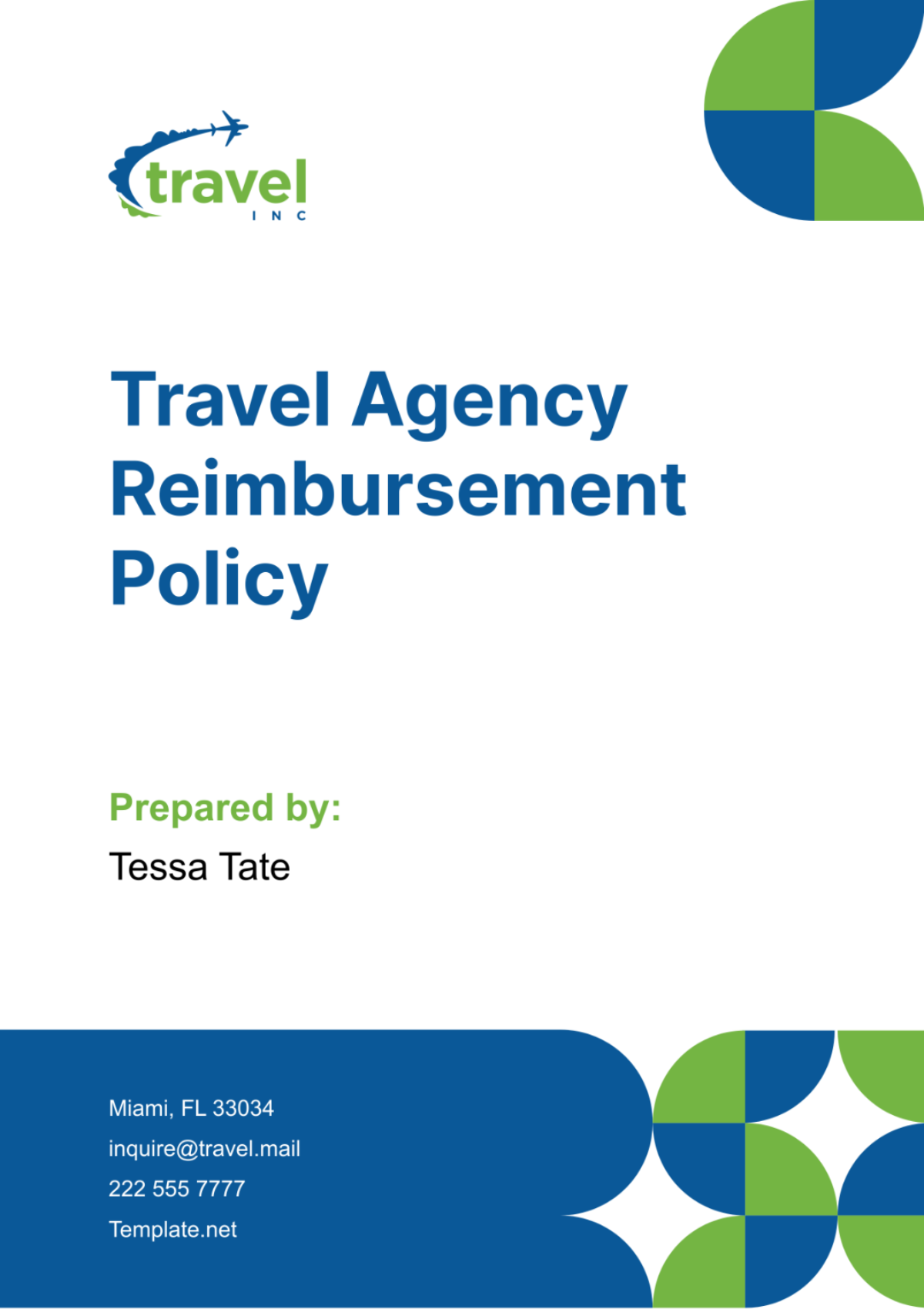
I. Introduction
At [Your Company Name], we value the dedication and commitment of our employees and partners in representing our agency during travel. This Travel Agency Reimbursement Policy is designed to ensure that travel expenses are incurred responsibly, in alignment with our company's goals and objectives, and are reimbursed promptly and accurately. This policy applies to all employees, contractors, and agents of [Your Company Name] who travel for business purposes.
II. Eligible Expenses
Employees and partners of [Your Company Name] may seek reimbursement for a variety of expenses, including transportation, accommodation, meals, incidentals, and other business-related costs, provided they are reasonable, necessary, and incurred during authorized travel for company purposes. By adhering to the guidelines outlined in this section, individuals can ensure that their expenses are eligible for reimbursement and contribute to the successful execution of our business activities.
Transportation: Reimbursement is provided for reasonable and necessary transportation expenses, including airfare, train tickets, rental cars, taxis, and other ground transportation. Employees are encouraged to book the most cost-effective options that meet business needs.
Accommodation: Expenses for lodging, such as hotel stays, Airbnb rentals, or other accommodations, are reimbursable. Employees should seek accommodations that are safe, comfortable, and within the company's budget guidelines.
Meals: Reasonable meal expenses incurred during travel are eligible for reimbursement. Employees should adhere to the company's meal allowance limits, which vary depending on the location and duration of travel.
Incidentals: Other reasonable and necessary expenses incurred during travel, such as internet fees, parking fees, tolls, and tips, may be reimbursed with appropriate documentation.
Business-Related Expenses: Expenses directly related to conducting business while traveling, such as conference registration fees, client entertainment, and business supplies, are eligible for reimbursement.
III. Documentation Requirements
To facilitate accurate and timely reimbursement, employees and partners must adhere to stringent documentation requirements, which include submitting original, itemized receipts for all reimbursable expenses, providing detailed travel itineraries, and completing comprehensive expense reports. These documentation standards ensure transparency, accountability, and compliance with company policies, allowing for efficient processing and validation of reimbursement claims.
Receipts: Original, itemized receipts must be provided for all reimbursable expenses, regardless of the amount. Electronic receipts are acceptable if they clearly indicate the vendor, date of purchase, items purchased, and total amount paid.
Travel Itinerary: Employees must submit a detailed travel itinerary, including dates of travel, destinations, purpose of the trip, and any planned business meetings or events.
Expense Reports: All expenses must be documented and submitted using the company's designated expense reporting system or forms. Expense reports should include a breakdown of each expense category, along with corresponding receipts and justification for each expense.
Approval: Expense reports must be approved by the employee's supervisor or designated approver before reimbursement can be processed.
IV. Approval Process
Prior approval is essential for all travel expenses incurred by employees and partners of [Your Company Name], except in cases of emergency or unforeseen circumstances, to ensure alignment with budgetary constraints and business objectives. Through a streamlined approval process overseen by supervisors or designated approvers, individuals can obtain authorization for their travel expenses in accordance with company policies and procedures.
Pre-Approval: Employees are required to obtain pre-approval for all travel expenses before incurring them, except in cases of emergency or unforeseen circumstances. Pre-approval may be obtained through the company's designated travel booking system or by submitting a travel request form to the employee's supervisor.
Authorization: Supervisors or designated approvers must review and authorize all travel expenses to ensure they comply with company policies and budget guidelines.
Timely Submission: Expense reports must be submitted promptly upon completion of the trip, typically within 30 days of the travel end date, to ensure timely processing and reimbursement.
V. Expense Limits
In order to control costs and maintain fiscal responsibility, [Your Company Name] may establish per diem allowances and maximum reimbursement limits for certain expense categories. The table below provides clear guidelines for employees and partners for expense limits.
Expense Category | Per Diem Allowance (USD) | Maximum Reimbursement Limit (USD) |
|---|---|---|
Meals | $50 per day | $300 per trip |
Lodging | $150 per night | $900 per trip |
Transportation | $100 per day | $600 per trip |
Incidentals | $25 per day | $150 per trip |
Business-related | Variable | $500 per trip |
VI. Reimbursement Procedures
Efficient reimbursement procedures are integral to ensuring that employees and partners receive timely compensation for their travel expenses, encompassing submission processes, currency conversion guidelines, direct deposit arrangements, and thorough reconciliation by the finance department. The procedures are as follows:
Submission Process: Employees must submit completed expense reports, along with supporting documentation, through the company's designated expense reimbursement system or to the finance department.
Currency Conversion: Expenses incurred in foreign currencies must be converted to the employee's home currency using the exchange rates in effect on the date of the expense. Currency conversion fees may be reimbursed with appropriate documentation.
Direct Deposit: Reimbursements will be processed via direct deposit to the employee's designated bank account, unless otherwise requested.
Reconciliation: The finance department will reconcile expense reports with supporting documentation to ensure accuracy and compliance with company policies before processing reimbursement.
VII. Travel Policy Compliance
Adherence to [Your Company Name]'s travel policy is paramount for all employees and partners engaging in business-related travel, encompassing booking procedures, safety guidelines, and traveler responsibilities to safeguard their well-being and uphold the reputation of our agency. Through strict compliance with these policies, individuals contribute to the overall efficiency, safety, and integrity of our travel operations.
Booking Procedures: Employees are required to book travel through the company's designated travel booking system or with approved travel vendors to ensure compliance with company policies and preferred rates.
Safety Guidelines: Employees must adhere to safety guidelines and travel advisories issued by [Your Company Name] and relevant government authorities while traveling.
Traveler Responsibilities: Employees are responsible for familiarizing themselves with and adhering to all provisions of this Travel Agency Reimbursement Policy and other relevant company policies.
VIII. Exceptions and Special Circumstances
While [Your Company Name] maintains firm guidelines for expense reimbursement, exceptions may be granted in cases of emergency travel or special circumstances, provided individuals obtain appropriate justification and approval from their supervisor or designated approver.
Emergency Travel: In cases of emergency travel or unforeseen circumstances, employees may incur expenses without obtaining pre-approval but must justify these expenses in their expense reports.
Special Circumstances: Exceptions to this policy may be granted in special circumstances with appropriate justification and approval from the employee's supervisor or designated approver.
IX. Tax Implications
Employees and partners of [Your Company Name] are advised to consider the tax implications of business-related travel expenses, including reporting requirements and potential tax deductibility, consulting with tax advisors as needed to ensure compliance with applicable laws and regulations.
Tax Reporting: Reimbursements for business-related travel expenses are generally not considered taxable income to the employee. However, employees are responsible for reporting any taxable reimbursements in accordance with applicable tax laws.
Tax Deductibility: Employees should consult with a tax advisor regarding the tax deductibility of business-related travel expenses, as tax laws and regulations may vary by jurisdiction.
X. Enforcement and Consequences
[Your Company Name] maintains robust mechanisms for monitoring compliance with the Travel Agency Reimbursement Policy, taking appropriate action against individuals who violate company policies or submit fraudulent expense claims, including delayed or denied reimbursements and disciplinary measures.
Compliance Monitoring: [Your Company Name] is committed to upholding the integrity of its Travel Agency Reimbursement Policy through regular compliance monitoring. The finance department, in coordination with relevant stakeholders, will conduct periodic audits to ensure adherence to policy guidelines and detect any instances of non-compliance or fraudulent activity.
Consequences of Non-Compliance: Non-compliance with the Travel Agency Reimbursement Policy may result in the following consequences:
Delayed or Denied Reimbursements: Expenses submitted in violation of policy guidelines may be subject to further review, resulting in delays or denials of reimbursement until discrepancies are resolved satisfactorily.
Financial Liability: Individuals found to have submitted fraudulent expense claims or violated policy guidelines may be held financially liable for any improperly reimbursed expenses and may be required to repay the amount in full.
Disciplinary Action: Violations of the Travel Agency Reimbursement Policy may lead to disciplinary action, up to and including warnings, probation, suspension, or termination of employment, depending on the severity and frequency of the infraction.
Loss of Trust and Reputation: Instances of non-compliance can damage the trust and reputation of both the individual and [Your Company Name], potentially jeopardizing professional relationships with clients, partners, and stakeholders.
Legal Consequences: Serious violations of policy guidelines or fraudulent activities may result in legal action being taken against the individual, including civil or criminal charges, if warranted.
Reporting Violations: Employees and partners are encouraged to report any suspected violations of the Travel Agency Reimbursement Policy to the appropriate authority, such as the finance department or human resources. Reports can be made anonymously through the company's designated reporting channels to ensure confidentiality and protect whistleblowers from retaliation.
Appeals Process: Individuals who believe they have been unfairly penalized for alleged violations of the policy may request a formal review or appeal of the decision through the established channels within the company. Appeals will be considered based on documented evidence and mitigating circumstances presented by the individual.
Training and Education: [Your Company Name] is committed to promoting awareness and understanding of the Travel Agency Reimbursement Policy through regular training and education initiatives. Employees and partners will receive comprehensive training on policy guidelines, procedures, and ethical standards to ensure compliance and mitigate the risk of non-compliance.
Continuous Improvement: [Your Company Name] will continually review and update the Travel Agency Reimbursement Policy to address emerging challenges, regulatory changes, and feedback from stakeholders. This ensures that the policy remains relevant, effective, and aligned with the evolving needs and priorities of the company.
XI. Conclusion
This Travel Agency Reimbursement Policy outlines the guidelines and procedures for reimbursing expenses incurred by employees and partners of [Your Company Name] while traveling on behalf of the agency. By adhering to these guidelines and acting responsibly, employees contribute to the efficient and effective management of company resources and the achievement of our business objectives.
[Your Company Name] reserves the right to modify or update this policy at any time without prior notice. Any changes to this policy will be communicated to employees through official channels.
- 100% Customizable, free editor
- Access 1 Million+ Templates, photo’s & graphics
- Download or share as a template
- Click and replace photos, graphics, text, backgrounds
- Resize, crop, AI write & more
- Access advanced editor
Ensure clarity and fairness in expense management with Template.net's Travel Agency Reimbursement Policy Template. Editable in our AI Editor Tool, this easily customizable template provides a structured format for outlining reimbursement procedures, eligible expenses, and submission guidelines within your travel agency. Enhance transparency, streamline processes, and empower employees with Template.net!
You may also like
- HR Policy
- Restaurant Policy
- Company Policy
- Accounting Policies and Procedures
- Website Policy
- Privacy Policy
- Safety Policy
- School Policy
- IT and Software Policy
- Law Firm Policy
- Construction Policy
- Interior Design Policy
- Travel Agency Policy
- Education Academic Policy
- Security Policy
- Real Estate Policy
- Expense Policy
- Software Policy
